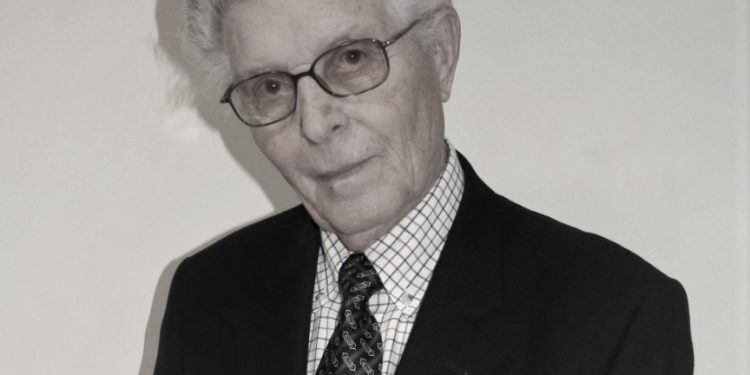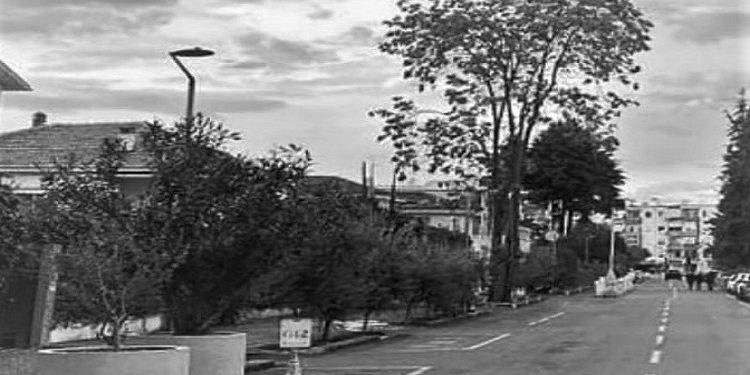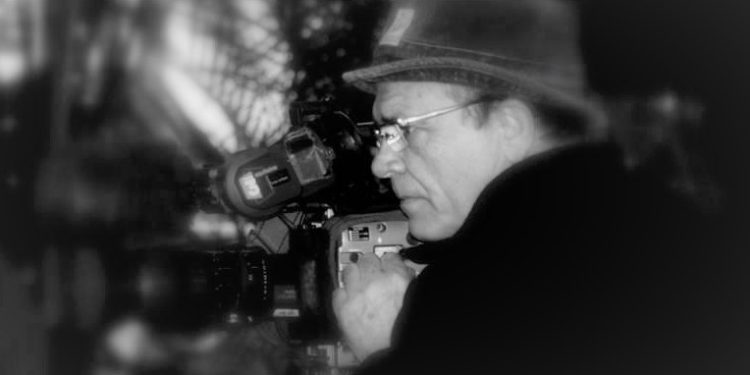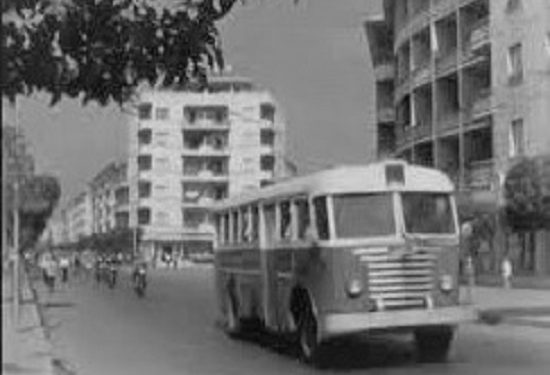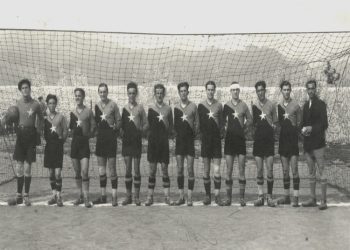By Vasil Qesari
Memorie.al/ The overthrow of the great totalitarian edifice in Albania would leave behind, not only the change of the system, accompanied by lots of hopes, mirages and cries of happiness but, unfortunately, also many wounds, dramas, victims, dust, milk and disappointments from the most different. Ten years and more after that event, which deeply shook society, completely overturning many previous codes, rules and concepts, people still continue to ask themselves such questions as: What really happened in society Albanian, during the last 50 years of the dictatorship? How was it possible that the system managed to warp everything? Why did people accept it? What was the totalitarian logic of the transformation of society and the individual? How were the structures of totalitarian mechanisms conceived and functioning: propaganda, secret police and the exercise of the ideology of terror? How did it happen that among all the communist countries of Eastern Europe, Albania was considered an exception or a special case? Why did Enver Hoxha remain blindly, fanatically loyal to Stalin until the end, turning the country into a prison where violence, fear and purges continued until the end of the 80s? Why was the country so insanely isolated, locking people up between bunkers and barbed wire? Why, then, did all the above phenomena happen…?! The book “Post-scriptum for Dictatorship” does not claim to provide definitive answers to the above questions, or the complexity of the reasons that brought and maintained the totalitarian power in Albania. Nor is it a complete, deep and comprehensive fresco of the life and suffering that people experienced during that system. Its author, perhaps, has the merit that together with the retrospective view of the totalitarian period as well as the zeal of a passionate analyst, he has tried to turn his head back once again, to give not only his personal memories and opinions, but also to return once again to the vision of that era with the simple philosophy of preserving the Memory and supporting the Appeal to never forget the well-known maxim, that…the corpse’s nails and hair continue to grow even after death! Ten years or more after the great revolution, the book in question has current value and we hope it will be appreciated by the reader because, as an Albanian researcher also says… the greatest evil that can happen to a people comes when he fails to analyze his own past. An amnesic people are forced to be constantly neuropathic and repeat their painful experiences…!
Memoirs of Emile Guinard, former Deputy / Consul of France in Albania during the years 1966-1970
– DEATH OF THE FRENCH AMBASSADOR –
The event happened suddenly…! One October evening, at 6:00 p.m., the ambassador’s wife, Mrs. Pinauldt, called me worried and told me to urgently call the Polyclinic of Tirana because her husband was not feeling well.
I called immediately; the doctor on duty assured me that he would come right away. But, although 20 minutes passed, he was not seen. Meanwhile, the ambassador’s condition was getting worse. Then I called the polyclinic again and asked about the reason for the delay.
Someone from the emergency room explained to me that, in cases of requests from embassy staff, the doctor could only perform the visit by order of the Protocol Service office at the Ministry of Foreign Affairs.
That idiotic logic got on my nerves and I explained to the person on the other side of the reception that it was not just a medical visit, but an extremely urgent case. However, I did not wait; I quickly got into the car and arrived in one breath at the ministry, which was not more than 2 km away away from our residence.
Fortunately, there I was able to find, quite by chance, one of the employees of the Protocol Service, to whom I explained that the ambassador was in a very serious condition and that I did not know how to explain the incomprehensible and not at all humane attitude of the doctors of emergency at the Central Polyclinic. The employee of the ministry told me that, for this problem, he would “keep a note” and that he would immediately give orders to send a doctor urgently.
Relieved by the promise, upon arriving at the embassy, I went and gave my heart to Mrs. Pinauldt, who was waiting alarmed and full of anxiety at the head of her languishing husband lying on the bed, pale and almost unconscious. I sat next to her, telling her encouraging words from time to time, with the certainty that the doctor should already be on his way.
But, the minutes passed and again I got the doubt and the fear that, this time, his arrival could be delayed. Then, I thought it would be good if, in the meantime, I went to seek help from an Albanian doctor who lived very close to the embassy.
I got up and, within two minutes, I was at his house. I told him that the ambassador was in a very serious condition and that, perhaps, he was hit in the heart by an infractus. He was dying, while the emergency doctor we were waiting for was still not coming.
Our neighbor gave me an answer that shocked me rather than I didn’t want to believe it. Calmly and decisively, he explained to me that he “couldn’t help Mr. Ambassador, because he didn’t feel well himself, and that at those moments he had the tension of 17”.
I begged him, saying that I could take him to the embassy in my car in a few seconds and it would not cause him any fatigue. But, again, he refused, justifying himself and letting me understand that, without an order from above and without being accompanied by a person authorized by the Party bodies, he could not enter a foreign embassy.
The only thing he suggested was the recommendation he gave me to give the patient two needles with camphor, and then wait for the doctor authorized for medical visits in foreign embassies…!
When I returned to the residence, Mr. Pinauldt’s condition was hopeless. The French guards were giving him artificial respiration, while the first secretary of the embassy, who himself went to the polyclinic to look for a doctor. Confused, I ran to the phone and asked the Protocol Office for help several times in a row. But from there they gave me the same answer: The doctor has left. Now it’s arriving…!
Finally, after 45 minutes, two doctors appeared at the outer gate of the residence and rushed to the patient’s room. But already, it was too late. The ambassador was dead. At 9 o’clock in the evening, the “official” doctor authorized for the “Diplomatic Corps” arrived and managed to ascertain only… death. In the meantime, we had completely lost it. We were all shocked and horrified. Not only from that rare and tragic loss, but in particular, from the scandalous delay of the doctors, as well as from the absurd and irresponsible attitudes of the Albanian authorities.
The next day, we placed the lifeless body of the ambassador in the main hall of the residence, where the entire diplomatic body accredited in Tirana (which was already aware of the development of the event and the cynical attitude of the authorities), came to pay their respects and condolences of the occasion. After them, came more than 20 senior Albanian officials, who silently bowed in front of the coffin, expressing their deep “regret”.
One of them, Mr. Reiz Malile, approached Mrs. Pinauldt and said in a low voice: “Trust me, madam, I have lost a true friend”!, while Mr. Misto Treska, who at that time headed the Albanian Committee for Cultural Relations with the Outside World, said: “Mr. Pinauldt was a true ambassador of the French in our country.”
On November 4, at 2:00 p.m., the coffin with the body of the deceased left the residence accompanied by a long procession of more than 50 cars from all the personnel of the embassies located in Tirana. In that case, the traffic of vehicles was blocked until the exit of the city. Upon arrival at the airport hall of Rinas, the children of the French diplomats placed bouquets of flowers on the coffin covered in black silk cloth with gilded borders.
A platoon of Albanian soldiers was an honor guard. While the sounds of Chopin’s Funeral March were heard, Mrs. Pinauldt, drowning in tears, found the courage and strength to say two words of thanks to the many present.
At 16:00, the special French plane specially arrived from Paris, took off from the runway of Rinas with Mrs. Pinauldt and the coffin of the deceased on board, whiles us, with tearful eyes, and took the way back to Tirana.
Most of the embassies in the Albanian capital, on that occasion, raised their flags at half-mast, while many diplomats expressed their revolt and contempt for the cynical and not at all humane attitude of the regime, which was blind and in complete indifference, let a 52-year-old diplomat die without any medical assistance.
A true friend of Albanians! A man who had spent a lot of energy and ability to strengthen Franco-Albanian cooperation…!/Memorie.al




